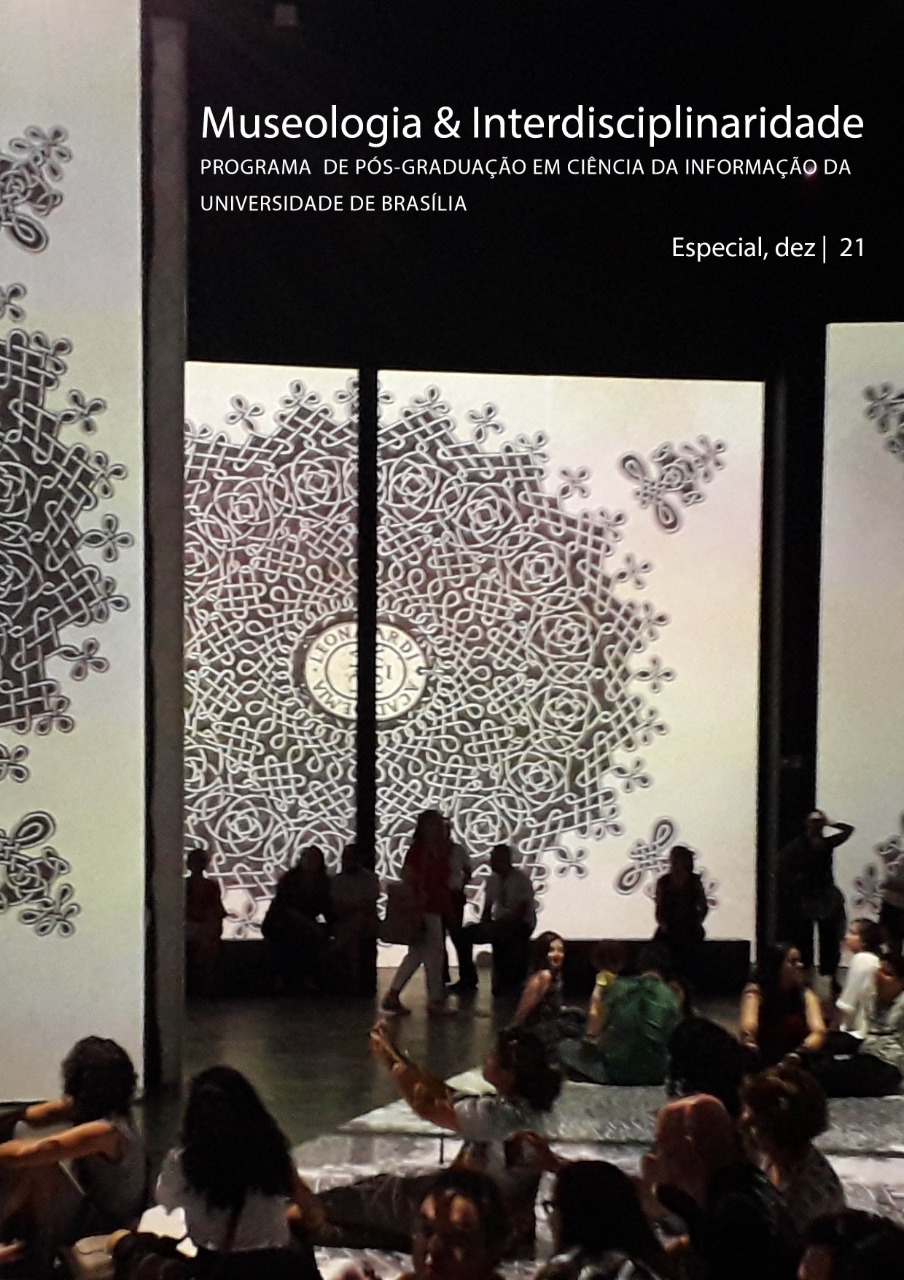Perspectivas da sociedade da informação
abordagem cultural e cenários cotidianos
DOI:
https://doi.org/10.26512/museologia.v10iEspecial.35866Palavras-chave:
Sociedade da Informação, Sociedade do Conhecimento, Sociedade em Rede, Economia baseada no conhecimento, CiberculturaResumo
Apresenta a informação no centro da sociedade contemporânea, sob seis perspectivas propostas por Frank Webster em 1995: econômica, espacial, ocupacional, tecnológica, cultural e do conhecimento. O texto tem início com a evolução de algumas locuções que surgiram para descrever a natureza da era da informação e revela que a expressão Sociedade da Informação incluiu e encapsulou todas as locuções parciais anteriores. O objetivo principal da pesquisa foi contextualizar a perspectiva cultural da Sociedade da Informação concomitantemente com as demais abordagens. A metodologia adotada foi a pesquisa bibliográfica, a fim de explorar e ampliar a revisão de literatura realizada por Webster com o propósito de criar os cenários da Sociedade da Informação aprimorados nos vários ângulos. A pesquisa conclui que a compreensão da Sociedade da Informação em cada uma das perspectivas evidencia aspectos da vida cotidiana indiscutivelmente dependente da informação e do conhecimento, que mudaram permanentemente o modo de viver.
Downloads
Referências
BARLOW, J. P. Declaration of the independence of cyberspace. Davos: Fórum Econômico Mundial, 1996
BELL, David. An introduction to cybercultures. Londres: Routledge, 2001.
BELL, Daniel. The corning of post-industrial society: a venture in social forecasting. Nova Iorque: Basic Books, 1973.
CASTELLS, M. The rise of the network society. 2a. ed. Oxford: Wiley-Blackwell, 2010. (Série The Information Age: Economy, Society and Culture, v. 1)
CRAVEN, P.; WELLMAN, B. The network city. Sociological Inquiry, v. 43, n. 3”“4, 1973.
DRUCKER, P. The age of discontinuity: guidelines to our changing times. Oxford: Butterworth-Heinemann, 1969.
DRUCKER, P. The effective executive: the definitive guide to getting the right things done. 50th anniversary edition. Nova Iorque: HarperCollins Publishers, 2017.
DURLAUF, S. N.; BLUME, L. E. (Ed.). The new Palgrave dictionary of economics. Londres: Palgrave Macmillan, 2008.
GALBRAITH, J. K. The affluent society. Boston: Houghton Mifflin, 1958.
GOULDNER, A. The future of intellectuals and the rise of the new class. Nova Iorque, v. 79, 1979.
HARRIS, P. Toward human emergence: a human resource philosophy for the future. Human Resource Development, 2009.
HAYEK, F. A. The use of knowledge in society. The American Economic Review, v. 35, n. 4, 1945.
HILTON, A. M. Cyberculture: the age of abundance and leisure. Ann Arbor: University of Michigan, 1964.
HILTZ, S. R.; TUROFF, M. The network nation: human communication via computer. Reading: Addison-Wesley, 1978.
INTERNATIONAL TELECOMMUNICATION UNION (ITU). World summit on the information society: declaration of principles. Genebra: Organização das Nações Unidas, 2003. (Document WSIS-03/GENEVA/DOC/4-E).
INTERNATIONAL TELECOMMUNICATION UNION (ITU). World Telecommunication Development Conference (WTDC-94). Buenos Aires. Vol. 1. Final Report. Genebra: ITU, 1994.
LEMOS, A. Cibercultura como território recombinante. Salvador: Instituto Goethe, 2006. (transcrição revisada da conferência ministrada no evento TERRITÓRIOS RECOMBINANTES, realizado no Instituto Goethe (ICBA), em Salvador, em agosto de 2006).
LÉVY, Pierre. Cibercultura. 2ª. ed. São Paulo: Ed. 34, 1999.
MACHLUP, Fritz. The production and distribution of knowledge in the United States. Princeton: Princeton University Press, 1962.
NEGROPONTE, N. Being digital. Londres: Hodder and Stoughton, 1995.
ORGANISATION FOR ECONOMIC CO-OPERATION AND DEVELOPMENT (OECD). The knowledge-based economy. Paris: OECD, 1996. (Document OCDE/GD(96)102)
OTLET, P. Monde, essai d'universalisme: connaissance du monde, sentiment du monde, action organisée et plan du monde. Bruxelas: Mundaneum, 1935.
PERKIN, H. The rise of professional society: England since 1880. London: Routledge, 1989.
PORAT, M. U. The information economy: definition and measurement. Washington: US Department of Commerce, Office of Telecommunications, 1976.
TAPSCOTT, D. The digital economy: promise and peril in the age of networked intelligence. Nova Iorque: McGraw-Hill, 1994.
TEIXEIRA, M.M. Cyberculture, from Plato to the virtual universe: the architecture of collective intelligence. Munique: Grin, 2012
TYLOR, E. B. Primitive culture: researches into the development of mythology, philosophy, religion, art and custom. Londres: J. Murray, 1871.
UNITED NATIONS EDUCATIONAL, SCIENTIFIC AND CULTURAL ORGANIZATION (UNESCO). UNITED NATIONS UNIVERSITY (UNU). Knowledge societies policy handbook. Paris: Unesco; UNU, 2016.
VAN DIJK, J. De netwerkmaatschappij: sociale aspecten van nieuwe media. Houten: Bohn Stafleu Van Loghum, 1991.
WEBSTER, F. Theories of the information society. Routledge, 1995
WIENER, N. The human use of human beings: cybernetics and society. 2a. ed. Nova Iorque: Doubleday Anchor Books, 1950.
Downloads
Publicado
Como Citar
Edição
Seção
Licença
Copyright (c) 2021 Museologia & Interdisciplinaridade

Este trabalho está licenciado sob uma licença Creative Commons Attribution-NonCommercial-NoDerivatives 4.0 International License.


